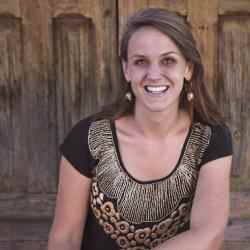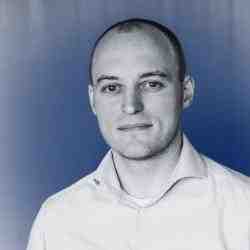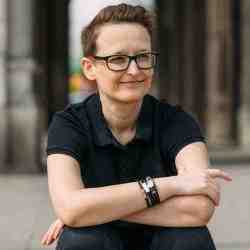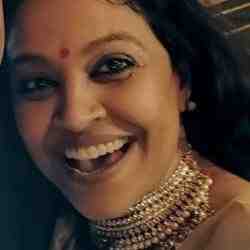Introduction
Prasanna is building an ecosystem to address the immediate and unmet needs of patients and families with rare diseases. By creating a unified coalition of stakeholders that includes the Public, Private and Citizen Sectors, he is introducing the social, physical and policy infrastructure that is needed to diagnose and treat patients.
L'idée nouvelle
Prasanna believes that in order to build a vibrant ecosystem that supports the development and delivery of early diagnostics, treatment, as well as R&D for Rare Diseases, there needs to be a strong coalition between stakeholders around shared resources and goals. Through his national, pioneer organization, ‘The Organisation for Rare Diseases India’ (ORDI), Prasanna is catalyzing the collective power of communities of patients and caregivers to advocate for and then create the support systems to first identify the issue as one of national importance and then empowering these patients and families with the resources they need.
With a focus on building an entirely new field of treatment, diagnosis, prevention and research for Rare Diseases, Prasanna is using an aggregate-advocate-build model to address the gaping needs of this community of patients and caregivers. Identifying that policy infrastructure needs to be built alongside social and physical infrastructure, Prasanna is leveraging the coalition of support groups, associations and stakeholders to create awareness and then advocate for support from Government to formally identify rare diseases as an issue. At the same time, the currently available shared resources his organization has curated is being used to build an ecosystem that addresses the immediate needs of patients and their families: such as the first national helpline for rare diseases which uses the expertise of genetics specialists, as well as the first database that tracks the diagnosis and treatment journeys of all patients. Prasanna is providing governments and pharmaceutical companies with evidence, data and information, so they invest in Rare Diseases, which they have not done so far because they consider the scale of the problem too small.
By building key infrastructure through collectivization, Prasanna is not only taking the conversation mainstream but also over time is addressing the overwhelming pressures on the public health care system.
Le problème
Approximately 6% of the Global Population today is affected by one of 7000 Rare Diseases (World Health Organisation 2016). In India, there is an estimated 70 million patients with Rare Diseases, with many of these people not accounted for or not diagnosed. Of those who are formally recognized, it is often after 7 years on average (ORDI 2016) and thousands of dollars worth of blind treatment expenditure that they are diagnosed. By this time, it is often too late for the patient to have any viable treatment options that will help them recover and it merely becomes a palliative model of care until death. This costly delay in diagnosis is due to a lack of critical infrastructure that can provide adequate training and the facilities to screen and diagnose children in a timely manner.
It is estimated that India itself has a higher rate of Rare Disease patients than any other country globally given the practice of consanguineous marriages, which still widely take place. Without a lack of awareness on family planning and its link to Diseases coupled with a social stigma towards physically challenged individuals, there continues to be an ignorance towards Rare Disease patients.
Given the very little that is known about these Diseases, there has been a complete dearth of support both from the public and private sector to invest in treatment options and R&D of orphan drugs. Families and caregivers with patients showing symptoms often have to spend thousands of dollars and go through large amounts of medical professionals, often to be diagnosed incorrectly or completely left in the dark. This lack of expertise among the medical fraternity on diagnosis and treatment of Rare Diseases as well as Genetics Testing is a direct result of the field having a deficit in it’s lucrative appeal to students and the larger ecosystem. There are in total only 27 Genetics Specialists across India today. Given 80% of all Rare Diseases have a genetic basis, this is a disconcerting number to cater to the millions of patients across the country.
Exacerbating the problem is a lack of any formal data that is centralized and available to policymakers and pharmaceutical companies. Without data such as the geographical division of patients it is difficult to advocate for more inclusive, affordable, accessible and compassionate health care, as the counter argument becomes a lack of evidence based information to direct support. This leaves patients and their caregivers alien to the quality health care and related products (such as insurance) that they deserve. Furthermore, the public health care system faces increasing pressure as more patients start coming forward and being diagnosed.
Given the low volumes in which the drugs are in demand, Pharmaceutical Companies have very finite commercial incentive to invest in the R&D of these drugs for treatment as well as clinical research. Even if they are incentivized through tax breaks and shorter clinical trials, these companies still are able to charge as much as they wish, given the low demand. While this is not a concern for patients in more developed countries, who largely have health care plans and policies protecting them, for those in countries like India, the gloom reality is that even if drugs do exist for treatment, they cannot afford it or have to rely on the unsustainable path of charity handouts.
Without a unified approach that aims to build all critical infrastructure as well as awareness for Rare Diseases, patients and their caregivers will continue to suffer in silence while the pressures on the public health care system continues to rise.
La stratégie
In a field that has little to no support structures available, Prasanna believes that the way to intervene is by bringing together all stakeholders to shine light on this unrecognized social problem. By doing so, the needs of the already diagnosed and suffering will start to be met whilst also building the long-term bastion for the prevention, diagnosis and support of patients and caregivers.
As a start, Prasanna developed his organization, ORDI, to catalyze a national movement that has an umbrella representation of all Rare Diseases patients, support groups and stakeholders across the country. After spending years, individually advocating for and building up national and international networks of parent and rare disease groups, Prasanna realized the need to bring together the already existing, under resourced and powerless support groups for individual Rare Diseases. By doing this, he has been able to start gathering information about patients and populating the first national patient registry in India. This registry, which gathers information from Primary Health Care Centers, Local Health Centers and other key institutions, plays a key role in influencing policy makers of the need to support Rare Diseases holistically. As well as this, key information on treatment history, diagnosis, treatment centers/options and medical information acts as a key reference source for the stakeholders in the ecosystem. For example, a patient's illness history and treatment plans can help others with the same rare disease with various options and access to the right specialists.
Prasanna is also able to leverage the networks that he has built to start creating the physical, social and policy infrastructure that has been eluded for so long. Through a coalition of genetic specialists, medical professionals and international organizations, he has built India’s first national helpline for Rare Diseases where genetic counseling, emergency support and information for diagnosis/treatment is available. This gives patients and their caregivers, especially from the most remote parts of the country an initial direction and support.
Prasanna has also started to influence national bodies that includes Private, Public and Citizen Sectors to build key physical infrastructure to focus on the immediate needs of the population.He has created the country’s first emergency and free medical ward for patients and a center for excellence after tying up with NIMHANS India (National Institute for Mental Health). He is now working at a policy level to have these centers replicated across the country. As well as this, Prasanna has worked with partners to build a hub and spoke based, National Care Coordination Centre. This center which aims to tie up with all Primary Health Care centers across the country, will gather patient information, patient needs and pain points and then arrange for consultations with specialists both in the country and abroad. This centralized approach will also provide key information for Research Centers and other stakeholders to derive from. Since inception, this center has already helped diagnose hundreds of patients from all across the country at various early diagnostic testing centers.
ORDI has also been instrumental in empowering the umbrella support groups to advocate for policy change for Rare Diseases. By initiating many Public Interest Litigations (PILs) which for the first time represent the voices of patients and caregivers from all over the country, the High Court in Delhi in 2014 first recognized the implicit right to healthcare for those with Rare Diseases. The court made a number of suggestions with the support of ORDI, including the suggestion of a development of best practices and guiding principles in relation to the treatment of rare diseases as well as highlighting the provision in the Companies Act 2013, confirming that the act of sponsorship for the treatment of Rare Diseases to qualify as a CSR activity.
As a result of the PIL’s filed, Karnataka has become the first state government with consultation with ORDI to release a Rare Disease and Orphan Drugs Policy. It’s recommendations include asking the Insurance Regulatory and Development Authority to reconsider the exclusion of pre-existing genetic disorders and require these companies to provide basic coverage with low premiums for patients. It also recommended the enactment of an orphan drugs statute that will allow for tax breaks and funding as incentives for the R&D of orphan drugs. Prasanna is working with a coalition of Pharmaceutical, Biotechnology and Diagnostic companies as well as other key stakeholders now to push for statewide policy be covered across the country.
Lastly, to continue to amplify the issue across the country, Prasanna is engineering institutions like the media, sporting organizations and civil society groups to come together through a series of national level events and campaigns. His Race for 7 Half Marathon event has become one of India’s predominant races annually, bringing together thousands of shared resources both financial and non financial to Rare Disease patients and their caregivers. He is also shifting societal mindsets towards this population through pairing up patients with Rare Diseases with a member of the public to complete the marathon as well as patient centric and sensitive media campaigns. His innovative model in which he pairs a medical student (for the tenure of their course and training) up with a family with Rare Diseases to track progress and provide information for treatment is another strategy Prasanna is using to sensitize the next generation medical fraternity. Prasanna has also pioneered the observance of Rare Diseases Day in India, now a national event that brings together media, government officials, companies and other stakeholders all across the country to continue to commit to address issues facing this community today.
Prasanna believes that once the Rare Disease policies start getting implemented across the country, there will be a paradigm shift in how patients will be treated, the affordability and accessibility of drugs to them as well as the access to many more therapeutic and diagnostic modalities. Prasanna aims to scale his idea through collecting resources from the increasing amount of partners ORDI has in it’s network and preparing that larger ecosystem to provide for the needs of this community through evidence based advocacy.
La personne
Prasanna was born in Hubli Karnataka, to a hardworking, middle class family. Influenced by the effort-reward childhood that he grew up in, Prasanna strived hard to succeed both in his academic and professional pursuits. After completing his postgraduate Business education, Prasanna forged a very successful sales and marketing career in the Telecommunications and Consumer industries. He played a significant role in shifting the mode of operating between employer-employee from being that of a transaction relationship to one that was of a shared vision, for a number of large companies
In 1999, Prasanna and his wife had their first child, their daughter Nidhi. From the first week of birth, there were indications of delayed milestones coupled with health problems that kept her in hospital for 45 days. Having trouble crawling, standing up and walking as well as numerous respiratory issues, Prasanna took his daughter to over 45 hospitals over 7 years, after which she was finally diagnosed with the Rare Disease, Pompe, the first patient in India.
Having a lack of support from the Public Health Care System and no formal treatment options based out of India, Prasanna was struggling to meet the growing needs of his daughter whilst managing his career. He subsequently quit his job and started selling his assets, to support the exponential cost of treatment and imported drugs. Understanding that this was not sustainable, in a bid to find the support needed for his daughter, Prasanna started to realize that there were many other families across the country who were fighting the same, silent battle.
This led Prasanna to start the first national level parents support group for children with ultra rare diseases (Lysosomol Storage Disorder Support Society India), with the goal of raising awareness and shared resources. He also started the Pompe Foundation in India, a specialized group focused solely on uniting and empowering patients and families with Pompe. As he slowly started to build national and international networks of specialists and organisations, Prasanna recognized that there needed to be a national umbrella organization serving as a collective voice and advocate for all Rare Disease patients across the country. In 2012 he founded ORDI, bringing together the powerful and collective voices of experts in genetics, molecular diagnostics, communications, patient advocacy and many other stakeholders.
Prasanna continues to be a shining light for this neglected group in society, playing the role of building this grand vision whilst also being a pillar of strength for his unwell daughter.

 Tile image
Tile image


